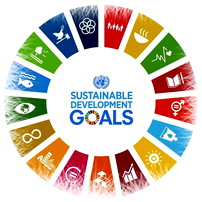 |
Winter Newsletter - Welcome to our first newsletter of 2021, rounding up the latest news and views on our research, training and education programmes. - Here we look forward to a long-running lecture series in honour of Chris Freeman, the founding father of Innovation Studies. We then look back over news and views from recent months, including several awards and achievements among our staff and students alike. - As ever, our guiding themes are the push and pull of international development: innovation through science and entrepreneurship (#SDG9), and governance through public policy analysis (#SDG16). |
|
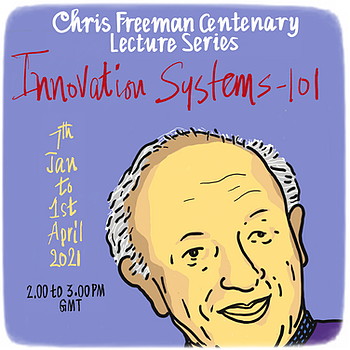 |
Upcoming Events A new lecture series running from January to April 2021 is already in full swing to honour Christopher Freeman, the founding father of modern Innovation Studies. Marking the centenary year of his birth, the target audience is budding researchers, graduate students and inter-disciplinarians who aspire to use the analytical framework of Innovation Systems (IS) in their research, but lack a thorough grounding in the theory. These online lectures are designed to serve as a 'text book', giving an opportunity to listen to and network with scholars already working in the domain. For more details and to register for the weekly lectures, please click here. |
|
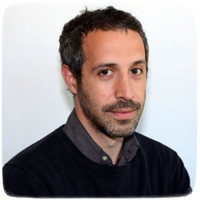 |
Latest News - A paper entitled ‘What factors drive successful industrialization? Evidence and implications for developing countries‘, co-authored by UNU-MERIT’s Dr Bruno Martorano, has won the 2019 Best Paper Award from the academic journal ‘Structural Change and Economic Dynamics’. The Journal’s Editorial Board selected the paper based on several criteria, including its significance for dynamics, structural change, economic, technological institutional behaviour, methods and innovation. - A team led by Stanford University’s John Ioannidis has updated their ranking of the top 2% scientists in the world. High up on the list are several researchers from Maastricht University, with the innovation-related research at UNU-MERIT strongly represented. MERIT researchers Prof René Kemp (also of the Maastricht Sustainability Institute) and Prof Bart Verspagen rank in the top 0.5% of the career-spanning list, while Prof René Belderbos (also of the Organisation, Strategy and Entrepreneurship department) and Prof Wim Groot appear in the top 1%. - Prof Kristof de Witte, our chair in Effectiveness and Efficiency of Educational Innovations, has been named Laureate of the Academy – Humanities 2020 by the Royal Flemish Academy of Belgium for Science and the Arts. This is the academy’s most prestigious award and is only the second time that the award has gone to an economist. |
|
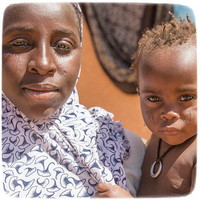 |
Recent Publications - Climate change is already impacting water resources across Africa. But what should African policymakers prioritise: water security or societal challenges linked to water? And how much influence should local communities and the private sector have on decision-making? A new article takes a social innovation perspective in a bid to reinforce the knowledge base for policymaking. The service sector plays a growing role in economies worldwide, despite claims of stagnation. But what is the relationship between manufacturing and services, especially in the Global South? And can the two sectors ever be truly complementary? A new paper investigates the uneven rise of the service sector, while also weighing the prospects for industrialisation across Africa. Click here for our December publications, covering one UNICEF report, two journal articles, and four working papers, among many others. - What are the links between migration, remittances and sustainable development in Africa? A new book considers how they relate to economic transformation, knowledge generation, corruption and conflict. It concludes with evidence-based policy recommendations in support of the Sustainable Development Goals. Would a greater focus on human security improve the planning and roll out of the 2030 Agenda? A new paper argues that this lens draws together many disparate tools, while also increasing human resilience. It presents two extended case studies, and gives suggestions for UN organisations, governments, and policy researchers. These are just a couple of questions tackled by our researchers in November 2020 — in one book, three journal articles, and six working papers, among many others. - How will artificial intelligence, big data, and open source technologies impact society? What are the opportunities and challenges posed by new technologies and digitisation? A new EU report shows that automation is creating new opportunities for the social economy, mainly in terms of increased reach and effectiveness. When the pandemic finally recedes, how should we rebuild our societies? How can we ensure a less divided and more sustainable world? Drawing inspiration from the Bauhaus movement, a new policy brief suggests we begin with a socially stronger and fairer Europe combined with a low-carbon economy. These are a few of the questions tackled by our researchers in October 2020 — in one policy brief, three journal articles, and five working papers, among many others. |
|
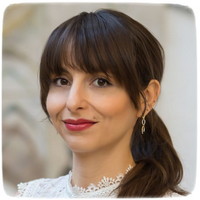 |
Application Deadlines - Apply by 15 February 2021 for our full-time PhD programme on Innovation, Economics and Governance for Development (IEGD). Our PhD fellows come from 38 countries including Bolivia, Iran, Vietnam and Zimbabwe. Upon graduation, they go on to work at the highest of levels: from the OECD in Paris, to UNICEF in Florence, to UNIDO in Vienna; across government ministries in Ecuador, Peru and beyond; and at top universities like Oxford, Cape Town and MIT. - Find out more about our full-time PhD fellows, from their research themes to career ambitions via our 'PhD Profiles' series. Recent stories cover a research trip to South Africa (sadly cut short by COVID-19), news of a $100k grant for research into refugee communities, and the lowdown from our first virtual PhD defence back in the spring of 2020. |
|
 |
Alumni Activities Our Master of Public Policy and Human Development (MPP) recently set up an ‘Alumni Committee’, which aims to connect our alumni with each other and with staff and students from the current year's programme. Our first activity will be an alumni lecture series, which will variously discuss work experiences, societal challenges, and how the programme helped our alumni in their careers. MPP students and alumni worldwide are welcome to join these events, which will begin online but may become hybrid affairs once the lockdown has lifted. We aim to start the lecture series in the first quarter of 2021. But before we start, we would like to know how many people are interested in attending or even presenting. Please let us know before 24 January 2021 by completing this form: https://forms.gle/1urtZKfzjCVJMq3d7. |
|
 |
Multimedia - Until next time, in early April, please check our social media accounts on Facebook, LinkedIn, Twitter, Instagram and YouTube. You can also stay up-to-date on all our major publications via our monthly ‘First Impressions’ roundup. - In the meantime, check out our new annual report in Shorthand format, rounding up all our research, training, projects, output and events -- including high-level knowledge sharing with partners including UNESCO, UNIDO and the OECD. More to follow very soon! |
|
- ABOUT US
- RESEARCH
- EDUCATION
- The Graduate School
- PhD Programme
- MSc Programmes
- Capacity Development
- News
- Design and Evaluation of Public Policies (DEPP)
- Design and Evaluation of Innovation Policies (DEIP)
- Evidence-Based Policy Research Methods (EPRM)
- Migration Management Diploma Programme (MMDP)
- Moving the Migration Policy Agenda Forward (MMPAF)
- Online Courses
- Short Courses (Masters)
- Tailor-made programmes
- UNU-MERIT, ITU Academy Training Centre
- Alumni
- Academic Funding
- NEWS
- EVENTS
- PUBLICATIONS
- LIBRARY





